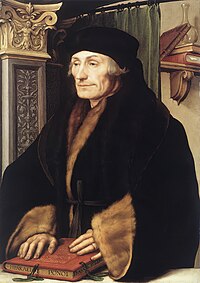This article needs additional citations for verification. (March 2021) |


An intellectual is a person who engages in critical thinking, research, and reflection about the reality of society, and who proposes solutions for its normative problems.[1][2] Coming from the world of culture, either as a creator or as a mediator, the intellectual participates in politics, either to defend a concrete proposition or to denounce an injustice, usually by either rejecting, producing or extending an ideology, and by defending a system of values.[3]
- ^ The New Fontana dictionary of Modern Thought Third Edition, A. Bullock & S. Trombley, Eds. (1999) p. 433.
- ^ Jennings, Jeremy and Kemp-Welch, Tony. "The Century of the Intellectual: From Dreyfus to Salman Rushdie", Intellectuals in Politics, Routledge: New York (1997) p. 1.
- ^ Ory, Pascal and Sirinelli, Jean-François. Les Intellectuels en France. De l’affaire Dreyfus à nos jours (The Intellectuals in France: From the Dreyfus Affair to Our Days), Paris: Armand Colin, 2002, p. 10.